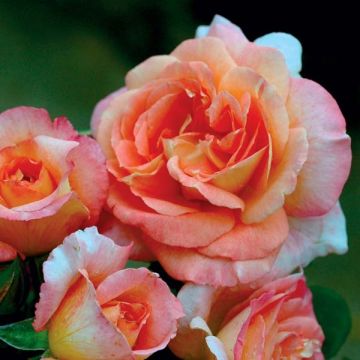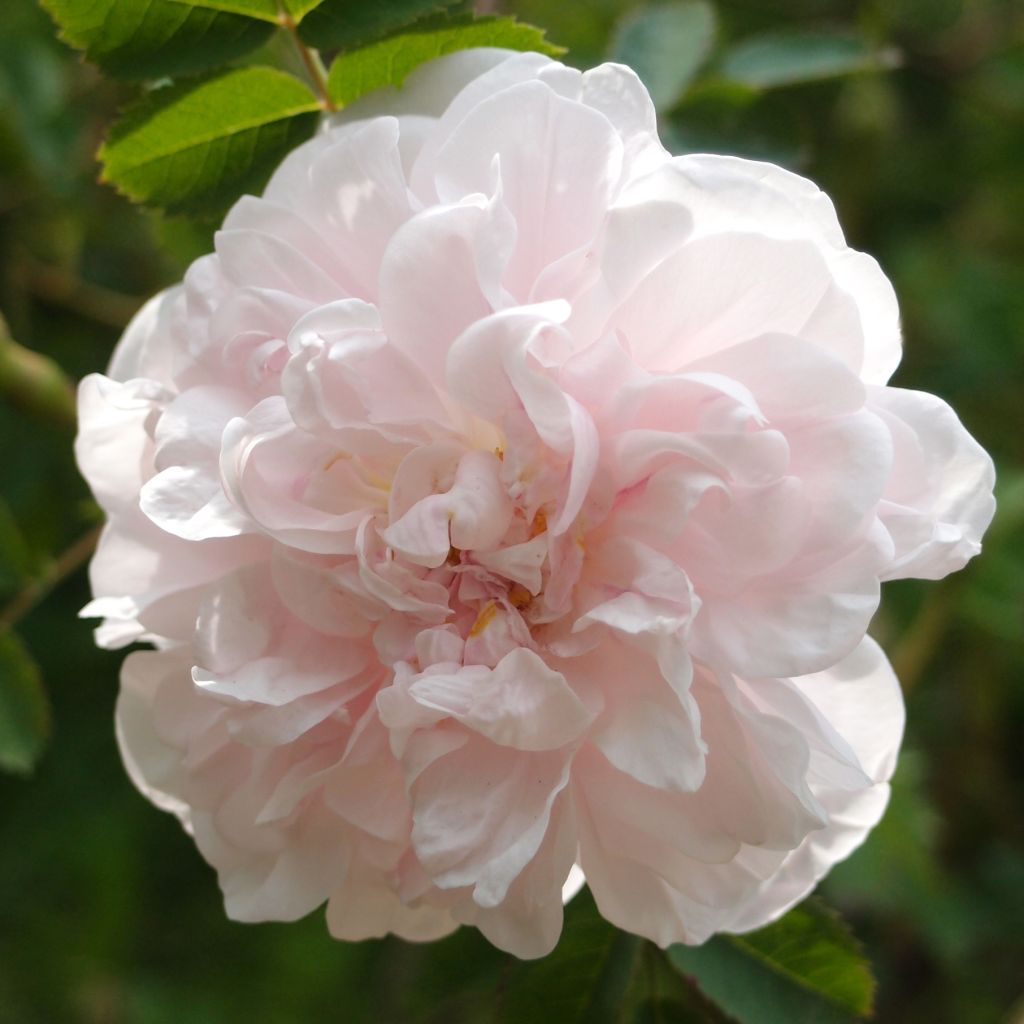

Rosa Stanwell Perpetual
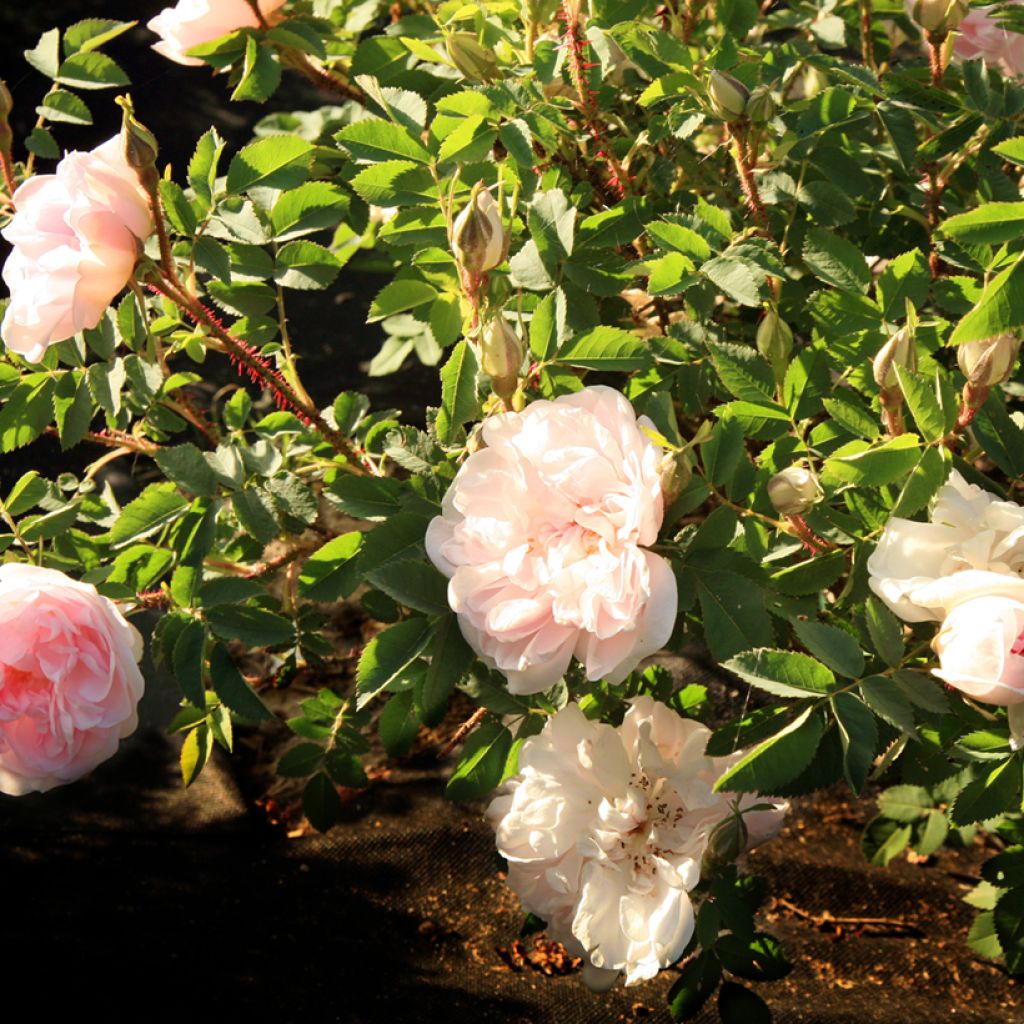

Rosa Stanwell Perpetual
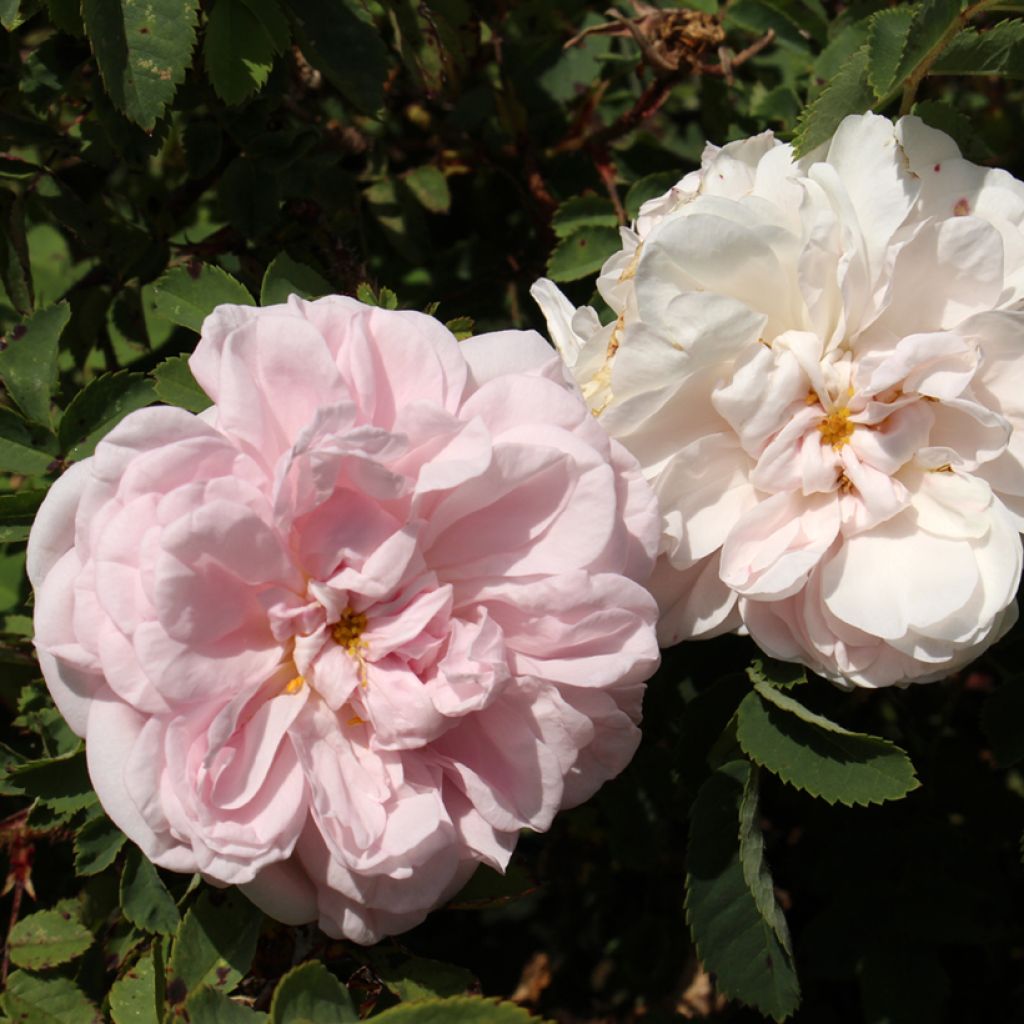

Rosa Stanwell Perpetual
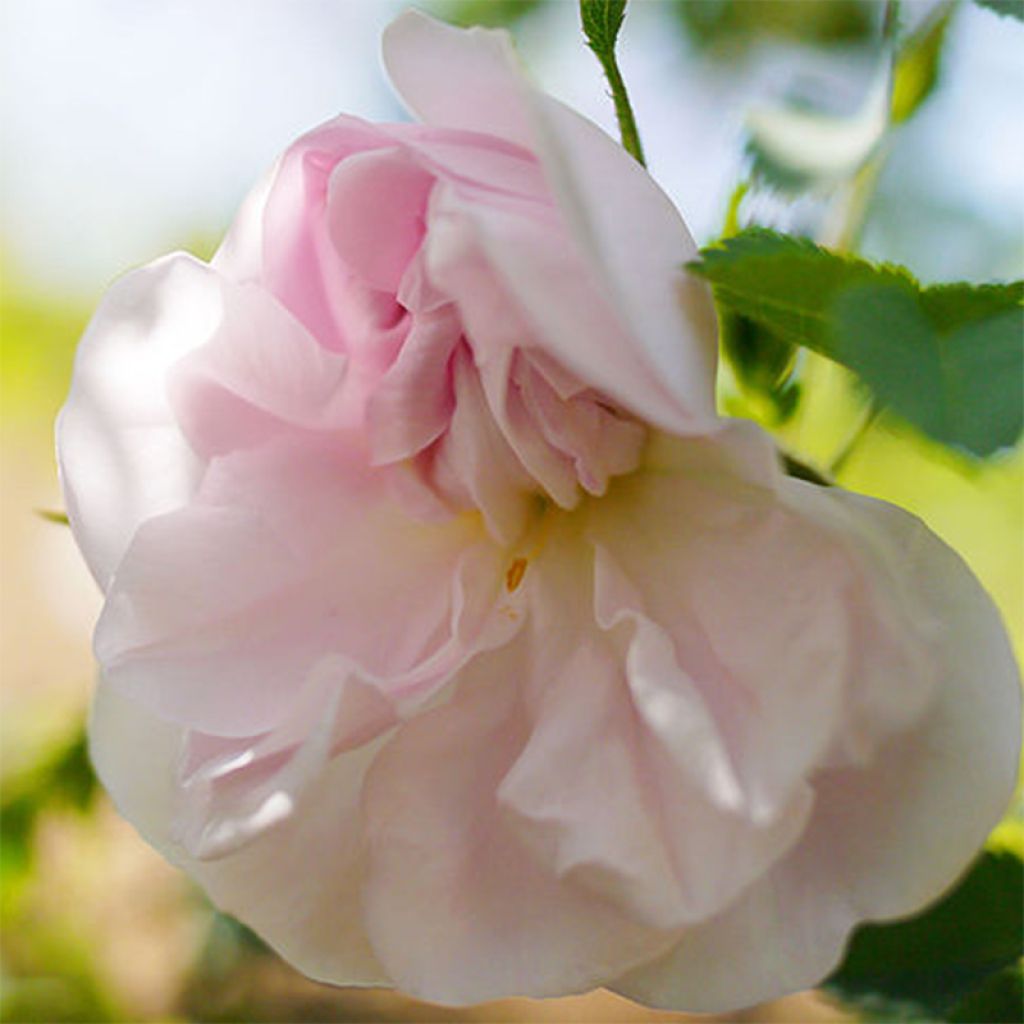

Rosa Stanwell Perpetual
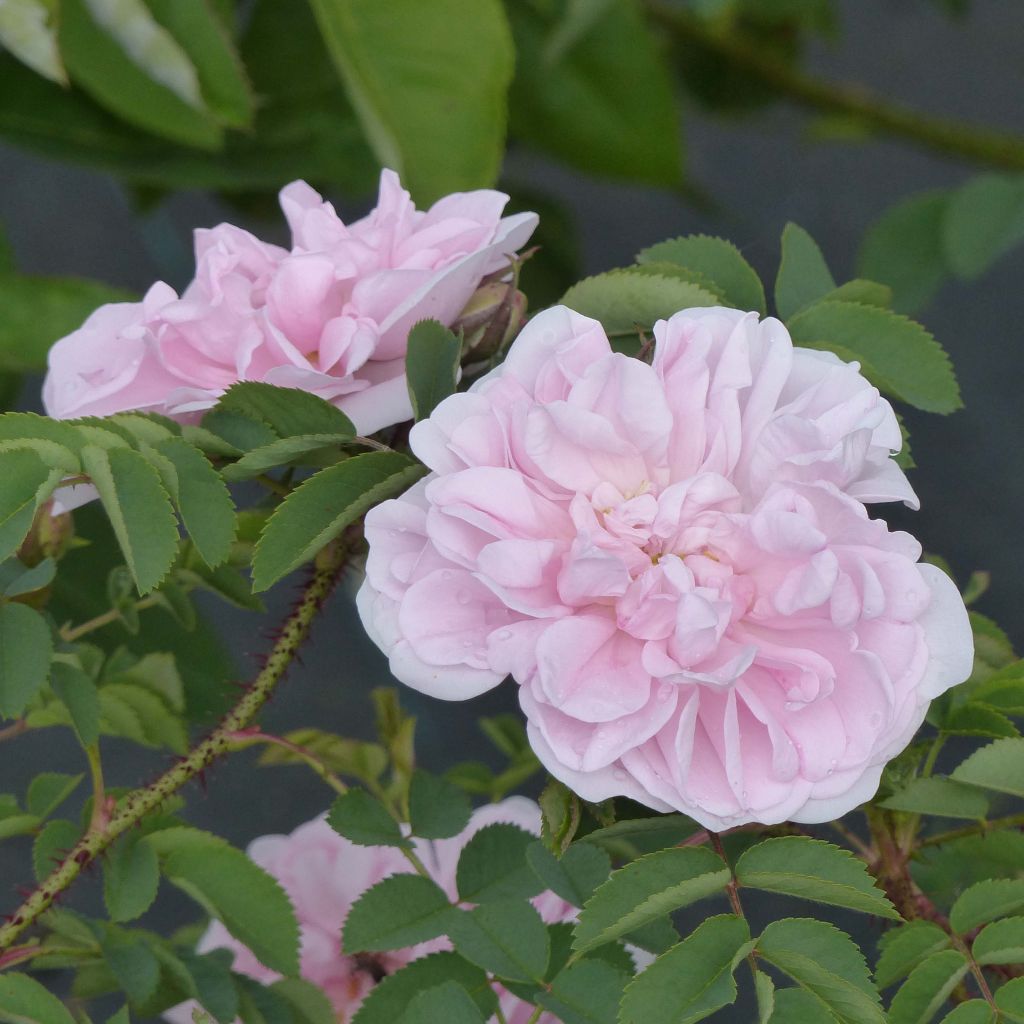

Rosa Stanwell Perpetual
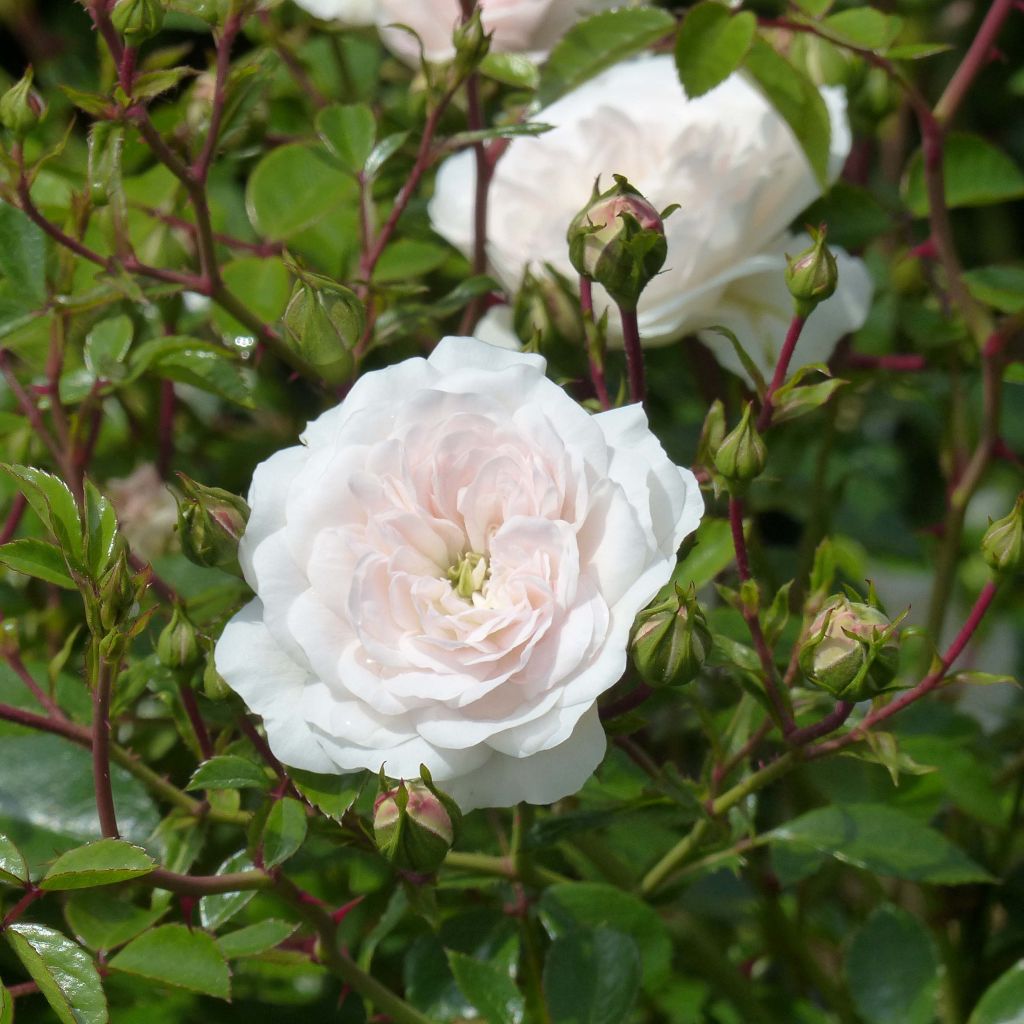

Rosa Stanwell Perpetual
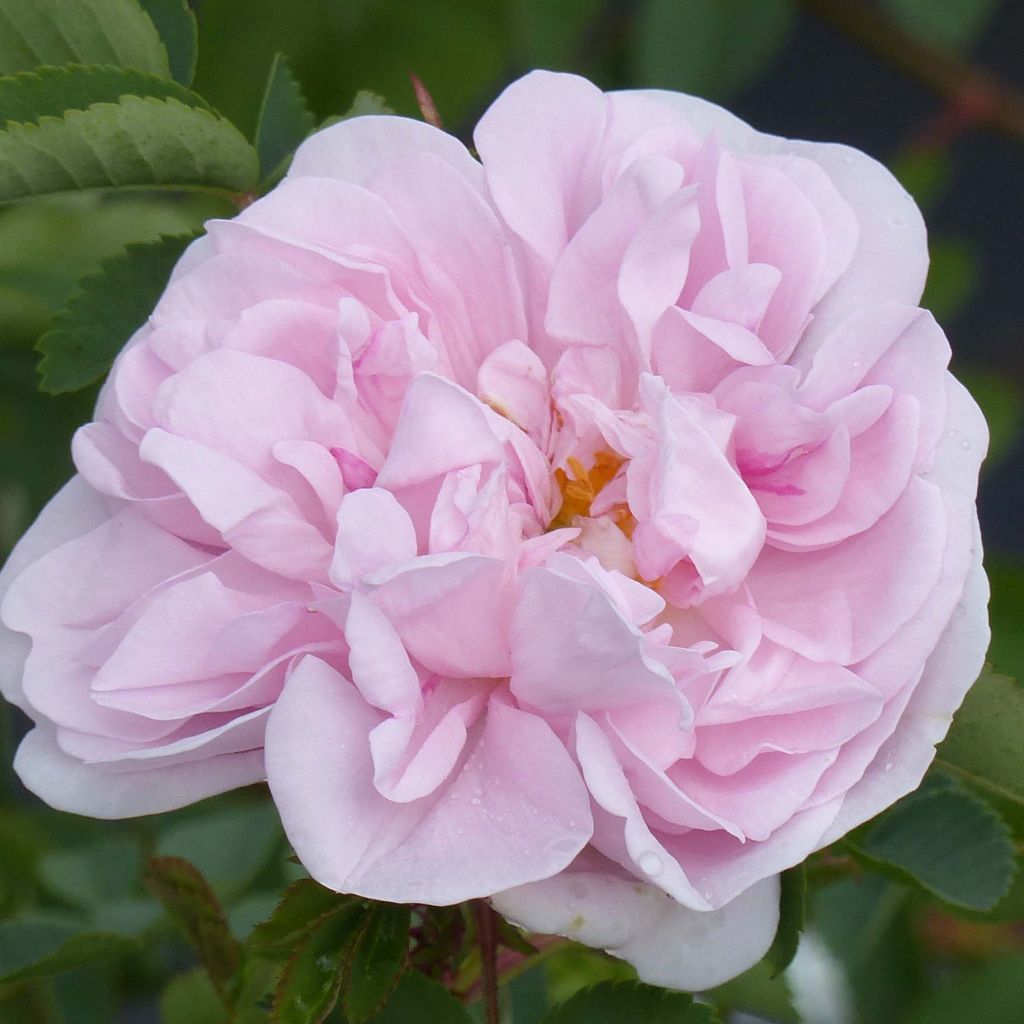

Rosa Stanwell Perpetual
View more pictures
Hide images
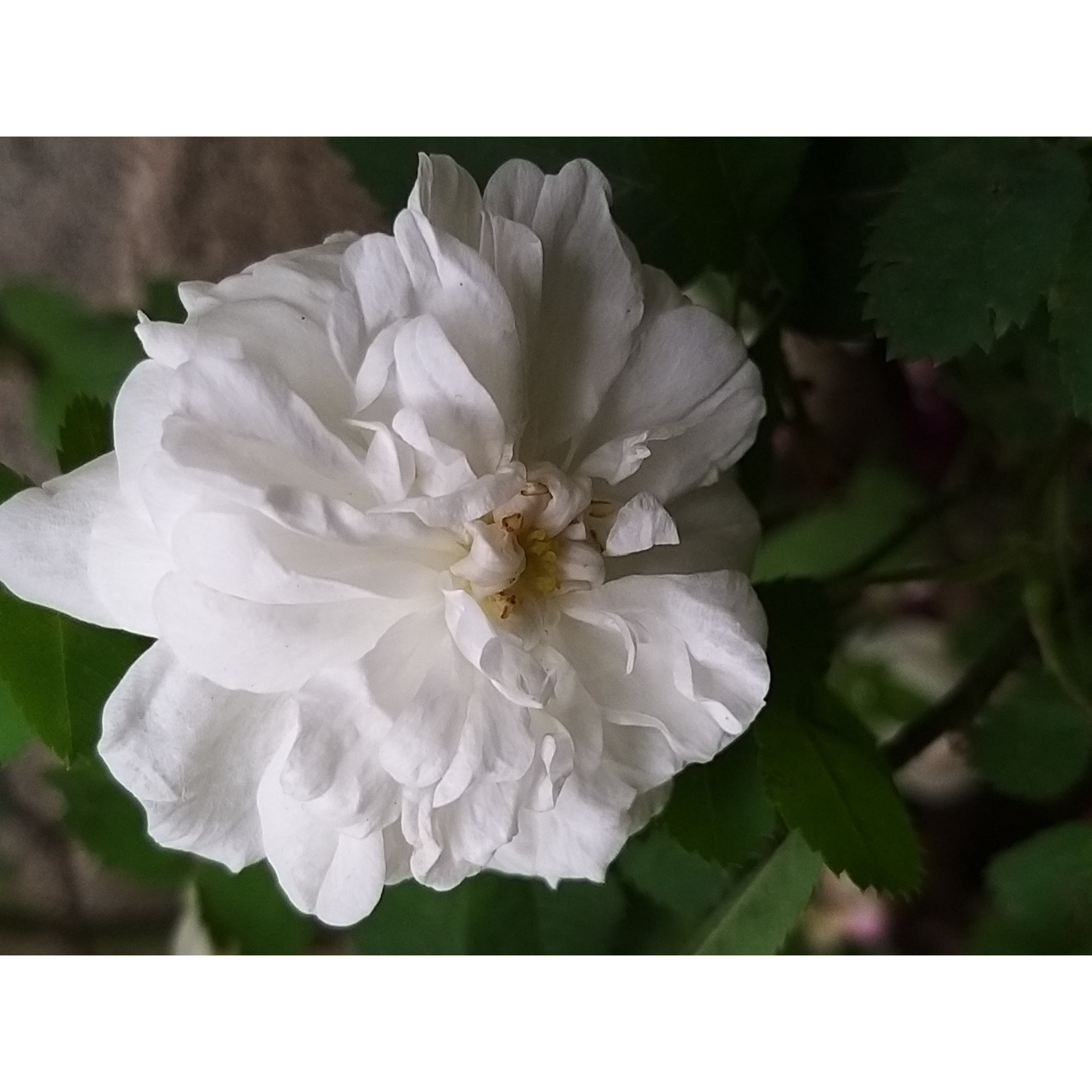
Thierry P.

May flowering - image 7
Thierry P. • 84 FR
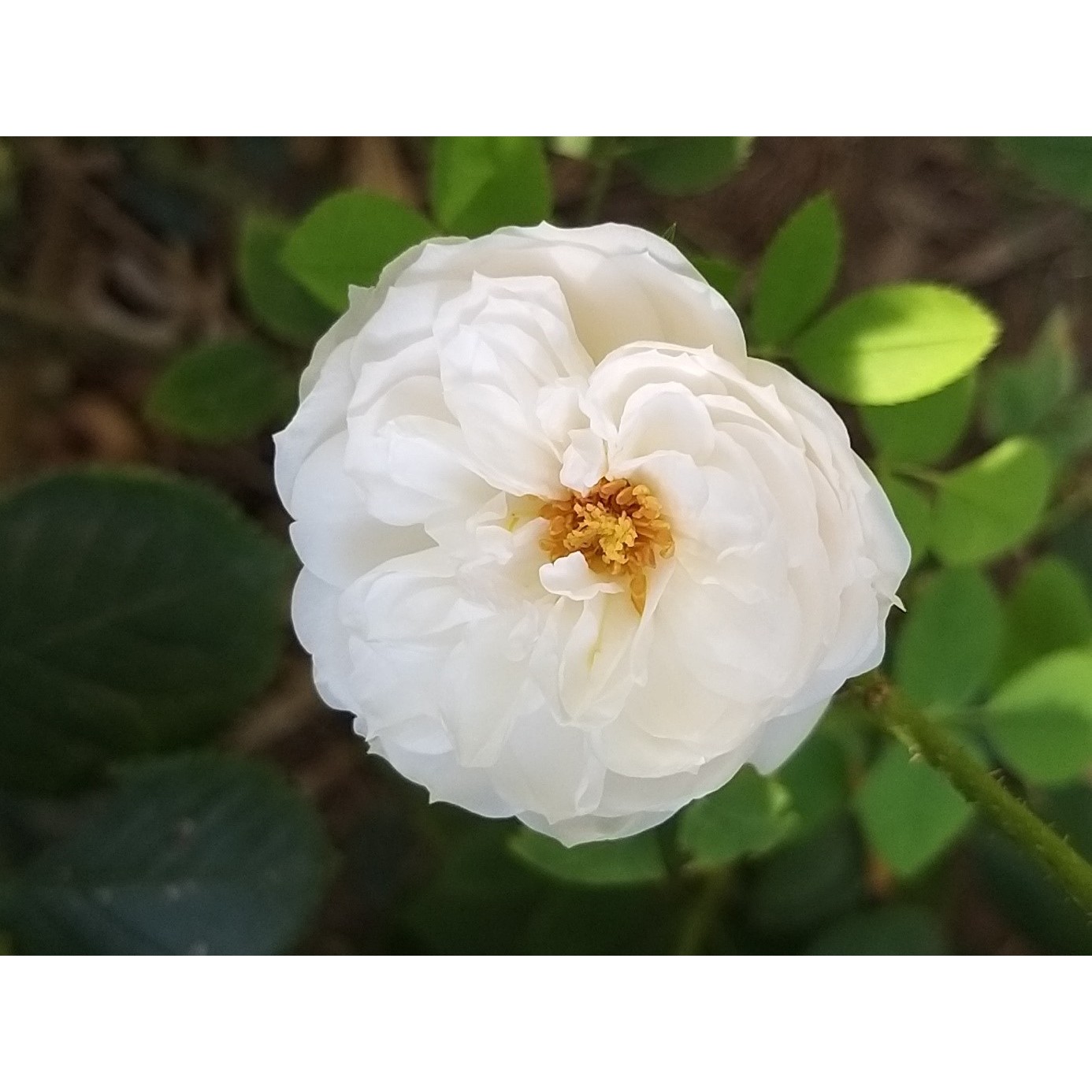
Thierry P.

September flowering - image 6
Thierry P. • 84 FR
Rosa Stanwell Perpetual
Rosa x pimpinellifolia Stanwell Perpetual
Burnet Rose, Scotch Rose
I received it with one rose and five large buds, and I planted it in November because the product information indicated that the buds were not afraid of frost. Indeed, a few weeks later, it froze (-2°C), but that didn't stop the rose bush from giving me flowers, one after another, until the end of December—five roses with a delightful fragrance! I hope it will bounce back well in spring, and especially grow and fill out, as it has a trailing habit, and since it's still small, the flowers are very close to the ground. I also really love its "fern-like" foliage, which is rare among rose bushes. For now, I'm delighted with it. I'm apprehensive about the summer test, as it gets extremely hot here. I planted it in a spot that is shaded for part of the day.
Hélène, 31/01/2026
Special offer!
Receive a €20 voucher for any order over €90 (excluding delivery costs, credit notes, and plastic-free options)!
1- Add your favorite plants to your cart.
2- Once you have reached €90, confirm your order (you can even choose the delivery date!).
3- As soon as your order is shipped, you will receive an email containing your voucher code, valid for 3 months (90 days).
Your voucher is unique and can only be used once, for any order with a minimum value of €20, excluding delivery costs.
Can be combined with other current offers, non-divisible and non-refundable.
Home or relay delivery (depending on size and destination)
Schedule delivery date,
and select date in basket
This plant carries a 6 months recovery warranty
More information
We guarantee the quality of our plants for a full growing cycle, and will replace at our expense any plant that fails to recover under normal climatic and planting conditions.


Description
The 'Stanwell Perpetual' Old Rose cultivates the ambivalence of its origins with undeniable talent. Sweet yet thorny, it has retained the rough character of its Scottish ancestor inhabiting the windswept dunes, but it has also inherited the tenderness and fragrance of the perpetual Damask rose, its other presumed parent. It develops into a dense bush with arched branches adorned with fern-like foliage. The impenetrable thicket it forms is adorned with small double and flat flowers, delicately scented, until the frost. This Pimpernelle-leaved rose will be remarkable in a defensive hedge that it will make charming. Tolerating shaded exposures quite well, its only requirement is to be planted in well-draining soil.
Rosa 'Stanwell Perpetual' is the only horticultural form of the Scottish rose capable of flowering tirelessly until the frost. The British nursery Lee introduced it to the market in 1838, but this spontaneous hybrid had likely already appeared in the 18th century. It has a wider than tall habit, so that ultimately it forms a very bushy bush reaching a height of 1.5 metres (4 feet 11 inches) and a width of over 1.8 metres (5 feet 11 inches). Its very thorny branches are initially erect, then they arch under the weight of the flowers and fruits. Its deciduous foliage, deeply divided into 5 to 13 leaflets with finely toothed edges, is typical of the Scottish rose, light green in summer, taking on bronze hues in autumn. Sometimes the leaves may become marked with dark, reddish spots. This is believed to be a characteristic of the species, caused by atmospheric conditions, which has no impact on the health of the plant. The flowering begins in May-June and continues until November, unaffected by frost. The solitary flowers are adorable small flat and double roses, in quarters, very soft to the touch, of a very pale pink turning to white. They measure about 6cm (2.4in) in diameter and have a deliciously sweet scent of medium intensity.
The passion for botanical roses and their direct hybrids is thoroughly justified, especially in difficult soils or climates: these roses are not only the parents of our modern roses, but they are generally more robust and very reliable. The 'Stanwell Perpetual' rose is a truly undemanding rose that will be loved. It will be useful in a bocage or defensive hedge, as it forms a thorny mass that is difficult to cross. Its location should be carefully chosen, in full sun and in soil that does not retain moisture. It is beautiful left to grow freely in a wild garden, or surrounded by the autumn foliage of Cotinus and deciduous Euonymus. In spring, the scent and roundness of lilacs, the purity of mock oranges will accompany its brand new youth, while in summer, Ceanothus pallidus 'Marie Blue' and shrubby Potentillas will take over. Very hardy, low maintenance, it is drought resistant once well established.
Report an error about the product description
Rosa Stanwell Perpetual in pictures
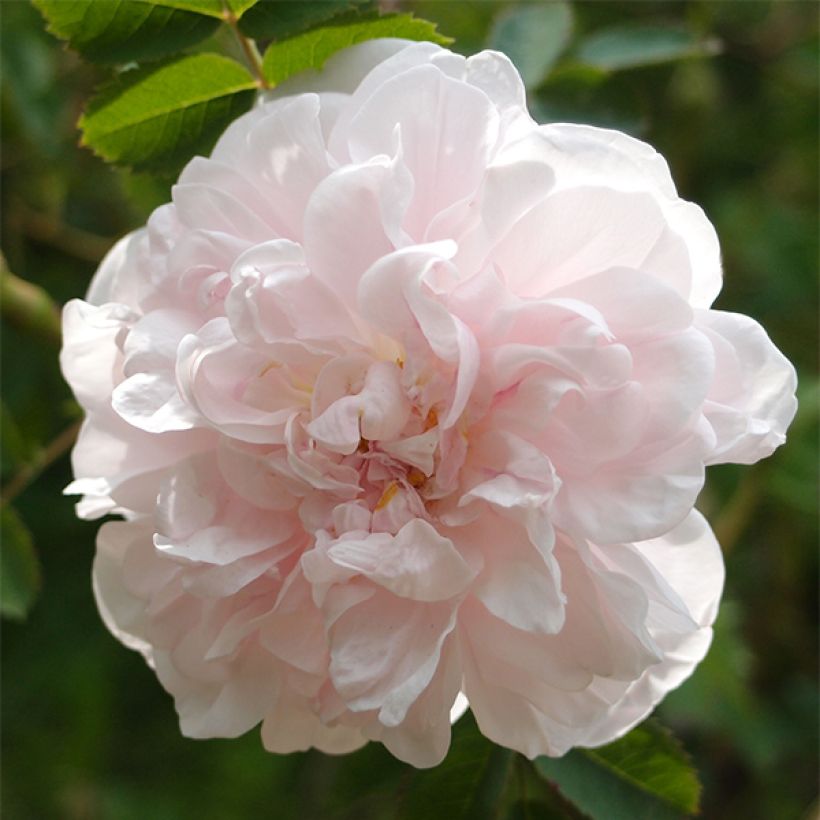

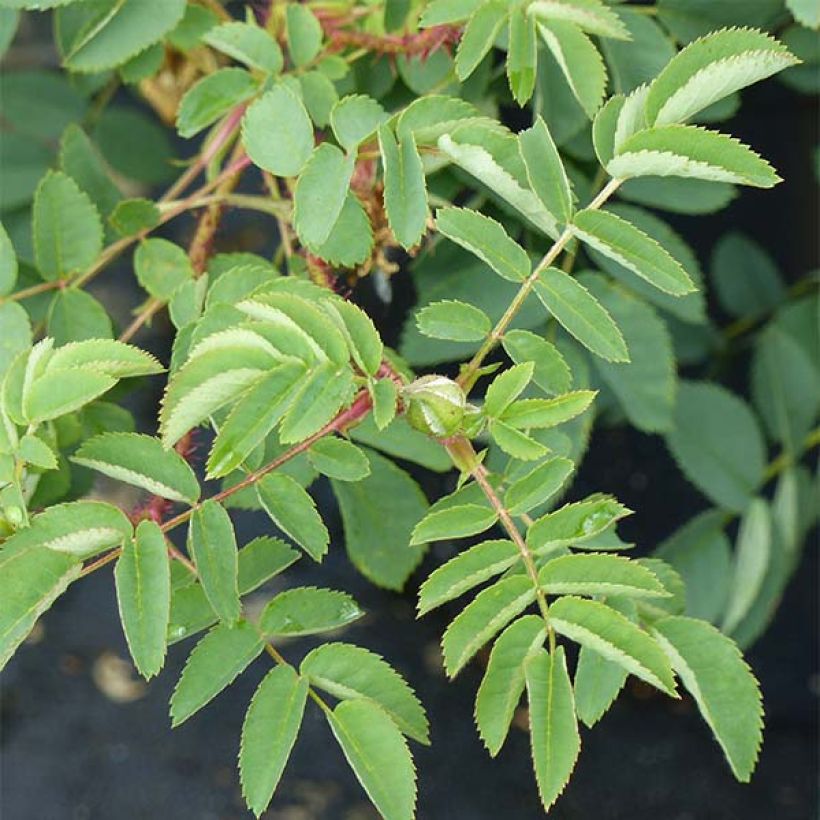

Plant habit
Flowering
Foliage
Botanical data
Rosa
x pimpinellifolia
Stanwell Perpetual
Rosaceae
Burnet Rose, Scotch Rose
Cultivar or hybrid
Rosa canina Laxa (4L/5L pot, Wrapped bare root)
Planting and care
The 'Stanwell Pepetual' rose, like all spinosissima hybrids, is not very demanding on the nature of the soil, as long as it is properly drained. It tolerates well calcareous and poor soils, but dreads suffocating soils. It thrives in all sufficiently sunny regions, does not fear diseases, cold, or drought once well established. This rose seems to tolerate shade better than other roses in Scotland. It adapts to all gardens, as long as the planting is well cared for! Plant it in well-worked and properly drained ordinary soil, in a sunny or partially shaded, or even shady, position, which it handles very well in hot climates. Quite hardy, this rose can withstand at least -25°C (-13 °F). It may be useful to remove dead wood in winter.
Roses are often spotted or unsightly at the end of summer, but it is not a problem for their development. These spots are not dangerous for the rose, it is a natural phenomenon.
Planting period
Intended location
Care
-
, onOrder confirmed
Reply from on Promesse de fleurs
Similar products
Haven't found what you were looking for?
Hardiness is the lowest winter temperature a plant can endure without suffering serious damage or even dying. However, hardiness is affected by location (a sheltered area, such as a patio), protection (winter cover) and soil type (hardiness is improved by well-drained soil).

Photo Sharing Terms & Conditions
In order to encourage gardeners to interact and share their experiences, Promesse de fleurs offers various media enabling content to be uploaded onto its Site - in particular via the ‘Photo sharing’ module.
The User agrees to refrain from:
- Posting any content that is illegal, prejudicial, insulting, racist, inciteful to hatred, revisionist, contrary to public decency, that infringes on privacy or on the privacy rights of third parties, in particular the publicity rights of persons and goods, intellectual property rights, or the right to privacy.
- Submitting content on behalf of a third party;
- Impersonate the identity of a third party and/or publish any personal information about a third party;
In general, the User undertakes to refrain from any unethical behaviour.
All Content (in particular text, comments, files, images, photos, videos, creative works, etc.), which may be subject to property or intellectual property rights, image or other private rights, shall remain the property of the User, subject to the limited rights granted by the terms of the licence granted by Promesse de fleurs as stated below. Users are at liberty to publish or not to publish such Content on the Site, notably via the ‘Photo Sharing’ facility, and accept that this Content shall be made public and freely accessible, notably on the Internet.
Users further acknowledge, undertake to have ,and guarantee that they hold all necessary rights and permissions to publish such material on the Site, in particular with regard to the legislation in force pertaining to any privacy, property, intellectual property, image, or contractual rights, or rights of any other nature. By publishing such Content on the Site, Users acknowledge accepting full liability as publishers of the Content within the meaning of the law, and grant Promesse de fleurs, free of charge, an inclusive, worldwide licence for the said Content for the entire duration of its publication, including all reproduction, representation, up/downloading, displaying, performing, transmission, and storage rights.
Users also grant permission for their name to be linked to the Content and accept that this link may not always be made available.
By engaging in posting material, Users consent to their Content becoming automatically accessible on the Internet, in particular on other sites and/or blogs and/or web pages of the Promesse de fleurs site, including in particular social pages and the Promesse de fleurs catalogue.
Users may secure the removal of entrusted content free of charge by issuing a simple request via our contact form.
The flowering period indicated on our website applies to countries and regions located in USDA zone 8 (France, the United Kingdom, Ireland, the Netherlands, etc.)
It will vary according to where you live:
- In zones 9 to 10 (Italy, Spain, Greece, etc.), flowering will occur about 2 to 4 weeks earlier.
- In zones 6 to 7 (Germany, Poland, Slovenia, and lower mountainous regions), flowering will be delayed by 2 to 3 weeks.
- In zone 5 (Central Europe, Scandinavia), blooming will be delayed by 3 to 5 weeks.
In temperate climates, pruning of spring-flowering shrubs (forsythia, spireas, etc.) should be done just after flowering.
Pruning of summer-flowering shrubs (Indian Lilac, Perovskia, etc.) can be done in winter or spring.
In cold regions as well as with frost-sensitive plants, avoid pruning too early when severe frosts may still occur.
The planting period indicated on our website applies to countries and regions located in USDA zone 8 (France, United Kingdom, Ireland, Netherlands).
It will vary according to where you live:
- In Mediterranean zones (Marseille, Madrid, Milan, etc.), autumn and winter are the best planting periods.
- In continental zones (Strasbourg, Munich, Vienna, etc.), delay planting by 2 to 3 weeks in spring and bring it forward by 2 to 4 weeks in autumn.
- In mountainous regions (the Alps, Pyrenees, Carpathians, etc.), it is best to plant in late spring (May-June) or late summer (August-September).
The harvesting period indicated on our website applies to countries and regions in USDA zone 8 (France, England, Ireland, the Netherlands).
In colder areas (Scandinavia, Poland, Austria...) fruit and vegetable harvests are likely to be delayed by 3-4 weeks.
In warmer areas (Italy, Spain, Greece, etc.), harvesting will probably take place earlier, depending on weather conditions.
The sowing periods indicated on our website apply to countries and regions within USDA Zone 8 (France, UK, Ireland, Netherlands).
In colder areas (Scandinavia, Poland, Austria...), delay any outdoor sowing by 3-4 weeks, or sow under glass.
In warmer climes (Italy, Spain, Greece, etc.), bring outdoor sowing forward by a few weeks.






























